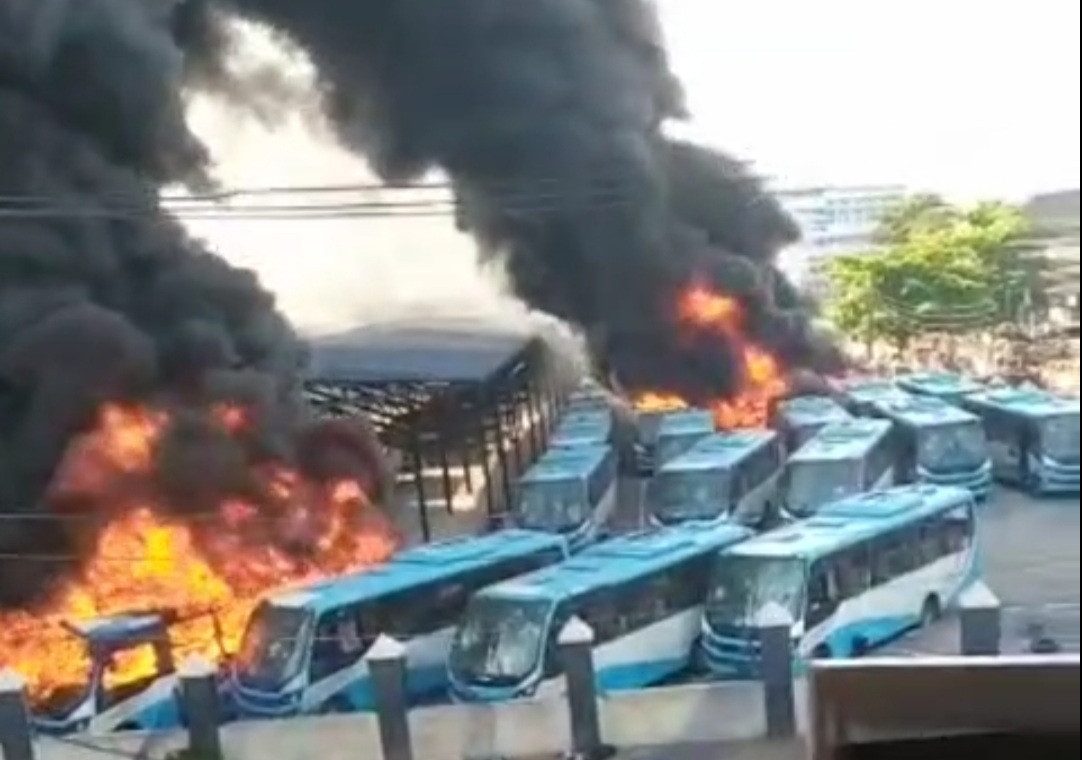Insurance firms are in panic mode over the huge destruction of properties in Lagos state and the claims that may likely arise from those destructions.
Rioters who took advantage of the #EndSARS protesters have touched high profile properties in Lagos state, some of which might have insurance claims running in hundreds of millions and several billions in cumulative claims.
- Domestic airlines lose N3bn daily over Lagos curfew
- Banks, others shut in Lagos as equities gain N60bn
Checks by our correspondent from insurance firms show that the balance sheet of underwriters will be adversely impacted as the claims would run into billions of naira.
Some properties were affected from reprisals since October 20, 2020 when the military allegedly shot at unarmed protesters.
Whilst some of the properties may not be insured, others are. “The BRT buses, the NPA building, Oriental Hotel and several other properties are insured,” an executive director in a frontline insurance company said.
He also said that if the insurance companies pay the claims definitely, a lot of companies may post losses for the 2020 fiscal year especially in the pandemic.
A Lagos based insurance and loss adjustment expert, Mr. Ralph Opara, said if the affected properties have valid insurance claims, then the impact on the industry would be huge.
“The starting point is to look at whether there is an insurance policy on the properties destroyed. Insurance ceases when civility ceases. So if for instance, war is declared, insurance ceases. If there is violent protest, insurance cover ceases. But if there is peaceful protest, insurance cover continues. So when properties are damaged, the question is, were the protests violent or peaceful?”
He further stated that “the standard Insurance policy doesn’t cover protest and riots.”
Opara also said if the policies have extensions, the claims payment impact will be catastrophic on the industry. “If the policies cover riots, it will have an adverse effect on insurance companies’ balance sheets. When this kind of large loss happens and the insurance industry pays, the premium might go up going forward,” he explained.

 Join Daily Trust WhatsApp Community For Quick Access To News and Happenings Around You.
Join Daily Trust WhatsApp Community For Quick Access To News and Happenings Around You.

